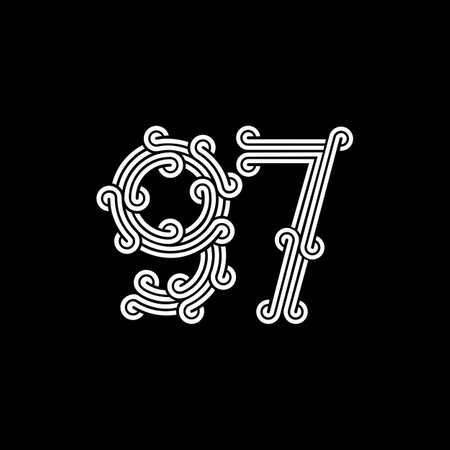1. Introduction to Bazi: Beyond Fortune Telling
When most Americans hear the term “Bazi,” they might think it’s just another form of fortune telling from Asia. But Bazi, often called the “Four Pillars of Destiny,” is much more than predicting luck or reading a horoscope. It’s a sophisticated philosophical system rooted in ancient Chinese culture that explores the dynamic relationship between Heaven, Earth, and Humanity. Let’s take a closer look at where Bazi comes from, its deeper meaning, and why it’s quietly finding new relevance in today’s American society.
What is Bazi?
Bazi literally means “Eight Characters,” representing the four pairs of Chinese characters derived from your birth year, month, day, and hour. These characters are based on the traditional Chinese calendar and reflect the energies present at your exact moment of birth.
Origins of Bazi: Ancient Wisdom Meets Modern Curiosity
Bazi traces its roots back over a thousand years to ancient China. Philosophers and scholars developed this system not only to forecast fate but to help people understand their unique strengths, challenges, and purpose in life. At its core, Bazi draws from the principles of Yin and Yang, the Five Elements (Wood, Fire, Earth, Metal, Water), and how these interact within an individual’s life path.
Bazi’s Core Philosophy: The Interplay Between Heaven, Earth, and Humanity
Unlike some Western concepts of destiny that focus purely on fate or luck, Bazi emphasizes a threefold connection:
| Aspect | Description | Modern Relevance |
|---|---|---|
| Heaven (Tian) | The time and circumstances you’re born into—your cosmic blueprint. | Genetics, upbringing, environment outside your control. |
| Earth (Di) | Your surroundings and opportunities—how you interact with the world around you. | Community, social setting, workplace culture. |
| Humanity (Ren) | Your choices and actions—the free will to shape your destiny within given circumstances. | Personal growth, decision-making, lifestyle habits. |
Bazi in America: Why Is It Becoming More Popular?
As more Americans explore mindfulness and holistic wellness practices, there’s growing curiosity about Eastern philosophies like Bazi. People are looking for tools that go beyond surface-level advice to offer deeper self-understanding. Whether it’s for career planning, relationships, or personal development, Bazi provides a fresh lens that combines ancient wisdom with modern life challenges. Its emphasis on both destiny and free will resonates with those seeking purpose and balance amid today’s fast-paced world.
2. Heaven, Earth, and Humanity: The Three Pillars
In Bazi philosophy, the world operates through the interplay of three fundamental forces: Heaven (天), Earth (地), and Humanity (人). Think of these as the main building blocks that shape a person’s life—sort of like mind, environment, and personal choices working together. Let’s break down each pillar using ideas and language familiar to American culture:
Heaven (天): Life’s Blueprint
Heaven represents what you’re born with—your “life blueprint.” In an American context, this is similar to your genetic makeup or the family and circumstances you’re born into. It’s like your starting hand in a card game: you didn’t pick it, but it sets the tone for how you play. This includes things like your birthday, natural talents, and even some challenges you might face.
How Americans Relate to Heaven
- Your birthday (astrology, horoscopes)
- Family background
- Inherited traits or “nature”
Earth (地): The Environment Around You
Earth stands for your environment—the world you live in and the opportunities or obstacles it presents. This could be where you grew up (city vs. countryside), your access to education, economic conditions, or even the cultural climate. Americans often talk about “the land of opportunity” or how environment shapes success stories.
How Americans Relate to Earth
- Your hometown or neighborhood
- Schooling and resources
- The economic ups and downs (“the American Dream”)
Humanity (人): Your Choices and Actions
Humanity is all about what you do with what you’re given—the personal drive and decisions that steer your life. In the U.S., this connects strongly with ideas of self-determination, “pulling yourself up by your bootstraps,” and making choices that define who you are beyond your circumstances.
How Americans Relate to Humanity
- Your work ethic
- The values you choose to follow
- Taking responsibility for your future (“self-made” mindset)
The Three Pillars Side by Side
| Pillar | Bazi Meaning | American Example |
|---|---|---|
| Heaven (天) | What you’re born with; fate; destiny | Date of birth, family background, genetics |
| Earth (地) | Your environment; external influences | Your neighborhood, school system, economy around you |
| Humanity (人) | Your actions; free will; personal effort | Your choices, ambition, values, and hard work |
Tying It Together: Why All Three Matter
Bazi teaches that no single pillar tells the whole story. Just like in America—where people believe both nature and nurture matter—it’s the combination of what you’re born with (Heaven), where you grow up (Earth), and what you choose to do (Humanity) that creates a unique life path. Understanding this interplay helps people make sense of their own journey and recognize where they have power to shape their destiny.

3. Interplay and Balance: How the Pillars Interact
Bazi philosophy teaches that life is shaped by the ongoing interaction of three key forces: Heaven, Earth, and Humanity. Just like in a well-balanced team or a harmonious community, these pillars work together to create opportunities, challenges, and outcomes for each individual. Let’s explore how this dynamic plays out, using real-life American examples to make it more relatable.
Understanding the Three Pillars in Everyday Life
To see how Heaven, Earth, and Humanity interact, think about them as parts of a big puzzle that shapes our experiences:
| Pillar | What It Represents | American Example |
|---|---|---|
| Heaven | Timing, destiny, things outside our control (like when we’re born) | A child born during the tech boom of the 1990s has access to digital tools from an early age |
| Earth | Environment and resources (family background, location, culture) | Growing up in Silicon Valley provides exposure to tech culture and innovation |
| Humanity | Personal choices, actions, and relationships | The decision to study computer science or join a startup community in college |
The Dynamic Relationship in Action
Bazi doesn’t see these pillars as separate; instead, they constantly influence one another. For example:
- Heaven sets the stage: You can’t choose your birth year or global trends, but they affect what’s possible. If you were born at the start of the internet era, new careers opened up that didn’t exist before.
- Earth shapes your environment: Living in a city with a thriving arts scene or strong business networks changes your exposure and opportunities. In America, cities like New York for finance or Los Angeles for entertainment are classic examples.
- Humanity means taking action: Even with great timing and resources, you need effort and initiative. Someone might have all the advantages but still needs to work hard or build good relationships to succeed.
Case Study: The American Dream through Bazi’s Lens
Consider an immigrant family moving to America:
- Heaven: Their arrival coincides with a demand for bilingual workers.
- Earth: They settle in a supportive community with access to schools and jobs.
- Humanity: The children embrace education and seize opportunities through scholarships or internships.
This example shows how success often comes from the interplay between circumstances (Heaven), surroundings (Earth), and personal effort (Humanity)—not just luck or hard work alone.
Bazi Balance: A Systemic View
Bazi encourages us to appreciate both what we can control and what we can’t. Like balancing work-life priorities or building teams with different strengths, understanding these three pillars helps us make better decisions without blaming fate or overestimating our own willpower. By seeing life as an interconnected system—much like how American society values both opportunity and self-reliance—we can navigate challenges with greater awareness and balance.
4. Applying Bazi Principles to Daily Life
Bringing Bazi Wisdom Into Modern American Living
Bazi philosophy is rooted in the dynamic balance between Heaven (destiny), Earth (environment), and Humanity (choices). While its origins are ancient, these principles can be adapted to help navigate everyday challenges in contemporary U.S. culture—from decision-making to relationships and personal growth.
Decision-Making: Aligning with Your Strengths
In the fast-paced American lifestyle, making choices—whether about career, education, or personal goals—can feel overwhelming. Bazi offers a framework for understanding your inherent strengths and weaknesses based on your birth chart. By recognizing which energies (Wood, Fire, Earth, Metal, Water) are dominant or lacking in your chart, you can make decisions that play to your strengths and seek support where needed.
| Element | Typical Strengths | Practical Application |
|---|---|---|
| Wood | Creativity, growth mindset | Pursue innovation-driven careers or hobbies; set clear personal development goals. |
| Fire | Passion, charisma | Lead group projects; engage in public speaking or advocacy roles. |
| Earth | Stability, dependability | Excel in team management; create structured routines for work-life balance. |
| Metal | Discipline, precision | Succeed in detail-oriented fields like finance or engineering; organize finances carefully. |
| Water | Adaptability, intuition | Nurture creative pursuits; explore counseling or flexible work environments. |
Navigating Relationships: Understanding Differences and Building Harmony
Bazi emphasizes the interplay between individual energies. In an American context—where diversity is valued—this means appreciating differences in family, friendships, or workplace teams. By learning about the elemental makeup of yourself and others, you can better understand communication styles and emotional needs, reducing misunderstandings and fostering more harmonious connections.
Tips for Using Bazi in Relationships:
- Acknowledge Elemental Differences: For example, if you are “Metal” (direct) and your partner is “Water” (flexible), find middle ground by blending structure with adaptability.
- Create Complementary Teams: At work, mix different personalities for balanced project teams—for instance, pairing “Fire” visionaries with “Earth” organizers.
- Cultivate Empathy: Use Bazi insights to approach conflicts with understanding rather than judgment.
Personal Growth: Embracing Change and Opportunity
Bazi teaches that while destiny sets the stage (Heaven), our actions (Humanity) shape outcomes. This echoes the American value of self-improvement and resilience. Whether facing life transitions like moving cities or starting new jobs, use Bazi as a roadmap: reflect on your current cycle (“luck pillar”), anticipate challenges, and proactively seek growth opportunities tailored to your unique strengths.
Bazi-Inspired Self-Growth Steps:
- Self-Reflection: Regularly assess which elements dominate or lack in your life right now.
- Lifelong Learning: Pursue skills or experiences that strengthen weaker elements—for example, take leadership courses if “Fire” is weak.
- Mental Flexibility: Accept change as a natural rhythm of life cycles—much like seasonal shifts recognized in Bazi philosophy.
- Cultural Adaptation: Blend Eastern wisdom with Western practicalities—use Bazi not as fate but as a guide for intentional living.
Bazi’s core insight is timeless: By understanding ourselves and our environment—and making conscious choices—we can live more balanced and fulfilling lives within the unique fabric of American society.
5. Bazi in the Western Context: Bridging East and West
Understanding Bazi Through an American Lens
Bazi, also known as Four Pillars of Destiny, is a cornerstone of Chinese metaphysics that explores how Heaven, Earth, and Humanity interact to shape our lives. As more Americans become interested in holistic self-discovery and personal growth, Bazi has found new ground in the U.S., but this journey brings both excitement and challenges.
Cultural Adaptation: East Meets West
In the United States, concepts like astrology, personality typing, and life coaching are already popular ways to understand oneself. When introducing Bazi, its helpful to highlight similarities and differences to avoid confusion. For example:
| Bazi (Chinese System) | Western Equivalent | Key Differences |
|---|---|---|
| Heavenly Stems & Earthly Branches | Zodiac Signs / Birth Charts | Bazi uses time, date, and cosmic cycles; Western astrology emphasizes planetary positions. |
| Five Elements (Wood, Fire, Earth, Metal, Water) | Four Elements (Fire, Earth, Air, Water) | Bazi includes Metal and Wood; elements interact differently. |
| Interplay of Destiny and Free Will | Fate vs. Choice debates in philosophy/self-help | Bazi sees destiny as a pattern to understand and harmonize with; not rigid fate. |
Navigating Misconceptions
As Bazi gains traction in the U.S., certain misconceptions can arise. Some may think it’s fortune-telling or superstition. In reality, Bazi is more like a cosmic personality map—helping people make informed choices based on their inherent strengths and life cycles. By clarifying that Bazi is about awareness and empowerment rather than predicting doom or luck, it becomes easier for Americans to embrace its wisdom.
The Universal Relevance of Bazi’s Core Principles
At its core, Bazi teaches balance between external circumstances (“Heaven”), environment (“Earth”), and personal actions (“Humanity”). These ideas resonate with anyone seeking harmony in life—regardless of background. For example:
- Heaven: Recognize what’s beyond your control—like family heritage or the era you’re born into.
- Earth: Understand how your surroundings shape you—where you live or work matters.
- Humanity: Focus on what you can influence—your attitudes, choices, and responses.
This holistic approach aligns naturally with American interests in self-development, mindfulness, and proactive living. By viewing Bazi as a tool for personal insight instead of a foreign mystery, it bridges cultures and enriches lives across boundaries.
6. Conclusion: Embracing Holistic Perspectives
When we look at Bazi philosophy through an American lens, it offers a refreshing way to understand how different forces shape our lives. In Bazi, life is not just about what we do (humanity), but also about the timing (heaven) and the environment (earth) we find ourselves in. This holistic view can help Americans move beyond a “go-it-alone” mindset and see how everything around us plays a role in our success and happiness.
Breaking Down the Interplay: Heaven, Earth, and Humanity
| Bazi Element | What It Represents | How It Connects to Daily Life in America |
|---|---|---|
| Heaven | Timing, fate, cosmic influences | Recognizing cycles and patterns—like knowing when to seize opportunities or take a step back. |
| Earth | The environment, surroundings, support systems | Appreciating the impact of family, community, workplace, and even physical spaces on well-being. |
| Humanity | Choices, actions, relationships | Taking personal responsibility while also valuing collaboration and empathy. |
Applying Bazi’s Wisdom in American Life
- Work-Life Balance: Instead of focusing only on hustle culture, we can recognize when it’s best to push forward and when it’s healthier to rest—just like understanding seasonal changes.
- Diversity & Inclusion: Bazi teaches that everyone has unique strengths. This aligns with embracing different backgrounds and skills in schools, workplaces, and communities.
- Personal Growth: By acknowledging both external circumstances (heaven and earth) and internal choices (humanity), we develop resilience and adaptability—qualities valued across American society.
A Holistic Mindset for Modern Challenges
Bazi encourages us to zoom out and see the bigger picture: life is a dance between what happens to us, where we are, and what we choose to do. For Americans navigating a fast-paced world full of change, this philosophy suggests we can thrive by blending self-initiative with awareness of timing and surroundings. By doing so, we foster not just individual success but also stronger families, communities, and networks—making life more meaningful for everyone involved.

